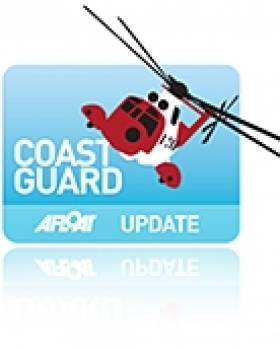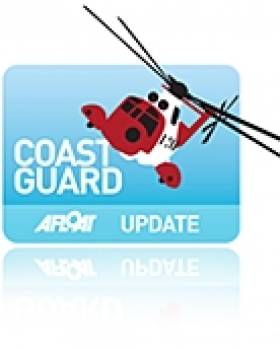Displaying items by tag: Sikorsky S61
End Of An Era As Irish Coast Guard's Last S61 Retires
#Coastguard - It was the end of an era yesterday (10 December) as the last remaining Sikorsky S61 search and rescue (SAR) helicopter in the Irish Coast Guard fleet stood its final SAR watch since services began in 1991 and was retired from active service.
According to the IRCG, the last stand by 'Alpha Romeo' was possibly the last ever watch by the world's oldest SAR S61, going on an impressive 52 years since its manufacture.
From today the chopper will be replaced by one of the new Sikorsky S92 aircraft, which as previously reported on Afloat.ie are currently being trialled as an air ambulance service, set to expand from Galway to Dublin in the coming weeks.
New Helicopter for Irish Coast Guard is Completed
#COASTGUARD - Sikorsky has completed production of a new S-92 helicopter for the Irish Coast Guard under the rescue service's €500 million deal with CHC Ireland.
The US-based helicopter firm and CHC formalised the purchase on Wednesday (21 December) with Irish Coast Guard director Chris Reynolds during a hand-over ceremony at the S-92 commercial helicopter assembly facility in Coatesville, Pennsylvania.
Equipped for dedicated search and rescue (SAR) operations, the helicopter will provide coverage for deep Atlantic Ocean missions, service Ireland's offshore islands and provide rescue cover on the west coast from Cork to Galway.
The new aircraft will be based at Shannon and will replace the current coastguard SAR helicopter, a Sikorsky S-61, which has given 20 years of unbroken service.
According to Sikorsky, the S-92 is equipped with advanced systems and hardware, including an automated flight control system that enables the pilot to fly pre-programmed search patterns and perform delicate hover manoeuvres; a wireless intercom allowing a rescue swimmer to communicate with the crew; radio transceivers to communicate with ships and rescue services; a weather radar and infrared sensor; and a digital video system to record rescues.
Reynolds said the new helicopter - which joins four second-hand machines on a 10-year lease - represents a stepped improvement in Ireland's ability to care for and service its seagoing, coastal and island communities.
"I am very happy that the Coast Guard will operate what I consider to be the leading SAR helicopter in the world," he added.
As reported earlier this year on Afloat.ie, the new chopper is part of a deal that raised questions from a Fine Gael TD over allegations that a competing tender did not have a "good reputation".
Fergus O'Dowd questioning the contract with CHC Ireland after receiving documents in which Chris Reynolds said the Air Corps – whose helicopters are supplied by AgustaWestland - were uneqipped for the role and that no cost saving would be made if they took on the service.































































